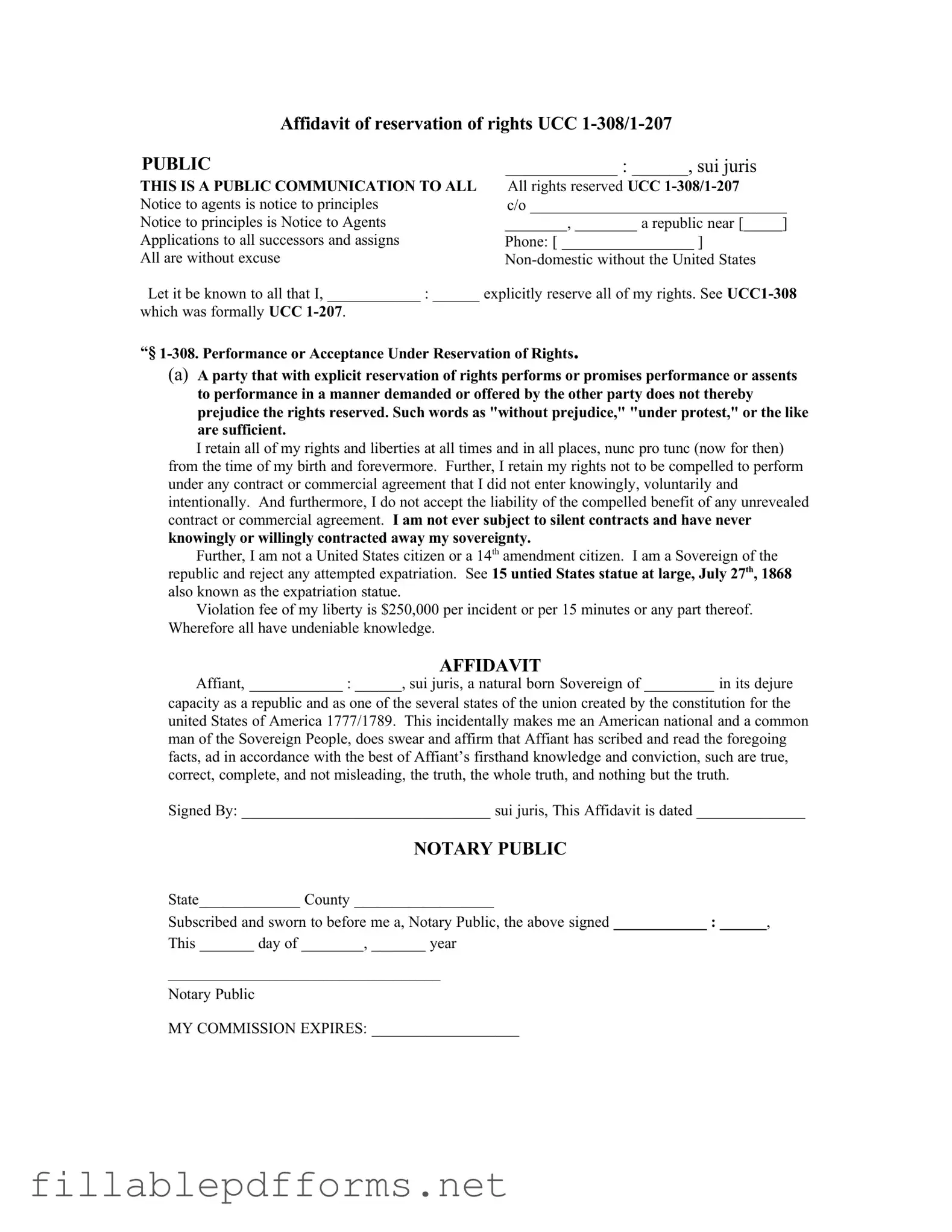Ucc 1 308 PDF Template
The UCC 1-308 form, also known as the Affidavit of Reservation of Rights, serves as a public declaration that individuals are reserving their rights under the Uniform Commercial Code. This form allows a party to perform or agree to performance while explicitly stating that they do not waive any of their rights. By utilizing this form, individuals can assert their sovereignty and protect themselves from potential liabilities associated with contracts they have not knowingly entered into.
Launch Editor Here

Ucc 1 308 PDF Template
Launch Editor Here

Launch Editor Here
or
▼ Ucc 1 308 PDF
Almost there — finish the form
Complete Ucc 1 308 online fast — no printing, no scanning.